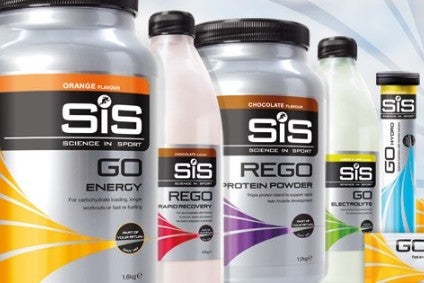
Science in Sport, the UK-based nutrition products manufacturer, said it has experienced a sharp reduction in revenues in Italy as a result of the coronavirus contagion, which has prompted that government to put the country into lockdown.
However, the London-listed business said revenues in China – the source of the Covid-19 outbreak late last year and which has since become a global pandemic – recovered in March. The company added that it has “received strong forward orders” in China as it reported a group loss today (18 March) for the financial year ended in December.

Discover B2B Marketing That Performs
Combine business intelligence and editorial excellence to reach engaged professionals across 36 leading media platforms.
Science in Sport said its management has developed contingency plans to protect the company and its workforce in the event coronavirus becomes more protracted than it currently is. For the time being, it is working with customers to ensure they have sufficient inventories to meet consumer demand.
“At present trading is in line with expectations,” the company said in a stock exchange filing.
“Preparations for Covid-19-related disruption have been in place for some weeks. Several months cover of certain sensitive raw materials are secured. Our Nelson manufacturing site and two third-party logistics operations have been isolated from each other and shift patterns in both operational units have also been separated, with cleaning processes taking place between shifts.
“Our office-based teams in all functions, including e-commerce operations and customer service, have commenced a full work-from-home policy.”

US Tariffs are shifting - will you react or anticipate?
Don’t let policy changes catch you off guard. Stay proactive with real-time data and expert analysis.
By GlobalDataScience in Sport supplies supermarkets, retailers, e-commerce channels and specialist sports retailers both at home and abroad. Founded in 2005, its products include powders, bars, flapjacks and drinks, including the recently acquired high-protein, low-sugar PhD Smart range, and the SiS brand of gels, powders and energy bars.
Earlier this year, the company launched into plant-based with its Plant20 range.
The company said today it entered new markets last year for the PhD range, including Russia, Saudi Arabia and Turkey. It also “made inroads” into the Middle East and several Latin American markets including Colombia and Brazil.
“We have planned for a further strong year of revenue growth in 2020 with innovation, e-commerce and international expansion being key drivers,” it said. “With integration of the PhD and SiS brands complete, we expect to deliver further cost savings as a result of supply chain efficiencies.”
Revenues rose 23% last year to GBP50.6m (US$60m), but the business reported an underlying operating loss of GBP300,000, albeit down from a GBP2.7m loss a year earlier. It posted a loss before tax of GBP5.1m versus a GBP6m loss in the corresponding period.
A loss after tax of GBP5.6m was recorded, slightly lower than the year-earlier loss of GBP5.9m. However, Science in Sport expects to make another loss in the current financial year.
Chief executive Stephen Moon said: “2019 was a transformational year for Science in Sport as we integrated the PhD business as planned and continued our strategic growth focus on e-commerce and international, positioning the group for the next stage of its growth.
“Our SiS businesses in Italy and Australia grew revenues by 66% and 46%, respectively, again with progress made in e-commerce, Amazon and through running and cycling retail channels. The Australian business was break even in 2019 and we expect the Italian business to become profitable in 2020.”



